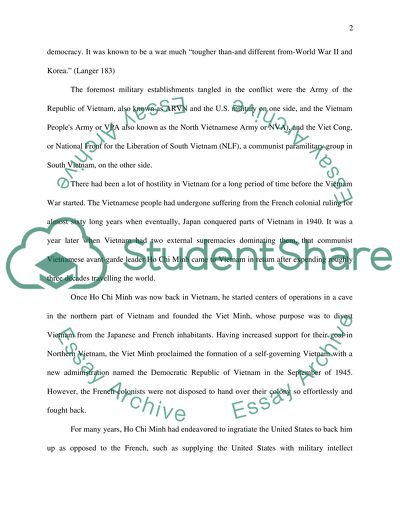Cite this document
(“The Vietnam War Essay Example | Topics and Well Written Essays - 1500 words”, n.d.)
Retrieved from https://studentshare.org/other/1397777-the-vietnam-war
Retrieved from https://studentshare.org/other/1397777-the-vietnam-war
(The Vietnam War Essay Example | Topics and Well Written Essays - 1500 Words)
https://studentshare.org/other/1397777-the-vietnam-war.
https://studentshare.org/other/1397777-the-vietnam-war.
“The Vietnam War Essay Example | Topics and Well Written Essays - 1500 Words”, n.d. https://studentshare.org/other/1397777-the-vietnam-war.


